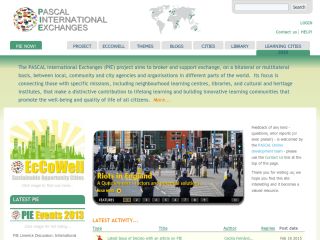Budd’s blog makes interesting reading. To those of us unliberated from the European continent yet, hopefully, able to detach ourselves form its cultural embrace, there are lessons to be learned from it. I’m not sure about a link between neoliberalism and Nazi ideology, but this economic and political system, imported from the USA, has certainly divided the continent and provoked a questioning of the European adventure.
European togetherness though has never been popular with the people. The few referendums held so far on European legislation have usually rejected the proposals for closer union. It’s easier to say no, especially when certain political leaders play the nationalist card, and the populist press has an eye on increased circulation. In several European countries, nationalist movements are leading a return to the days of the 1930s when nation states were nation states and not subject to interference from any supra national body. And we all know what that led to.
So the question is what is actually driving ithinking in Europe. For the vast majority of people it isn’t ideas, or forward thinking or working out Europe’s place in world affairs. It’s more the (alleged) scandals of the bureaucrats, the (alleged) wastage of money, the (alleged) clogging bureaucracy and the remoteness of Brussels from their everyday lives. Their information comes from the populist media, much of which, in Britain especially, is dominated by what Budd rightly calls the cowboy capitalists. And in this age of giving power to the people this is troubling for such outward-looking notions of a Europe of Ideas, no matter how seductive it is to intellectuals.
So whither the Europe of ideas? It is an enticing concept given that there are so many original thinkers in academia and a burning desire to help change the global status quo. Regrettably I believe that neo-liberal austerity orthodoxy will also constrain the influence of universities and they will continue to be under pressure to conform to political and commercial requirements for their funding.
The upside may be that ideas are not inhibited by politics, economies or commerce. They are the result of thought processes, often but not always supported by research, and a desire to change the status quo. Many of the world’s most original thinkers – Newton, Pascal, Descartes, Einstein, Karl Marx, Wilberforce, Freud – the list is endless, were European, just as in their own milieu and time, were non-Europeans such as Confucius, Mandela, Ibn Khaldun, Said, Thoreau, Chomsky and others. The trick is to make the ideas audible over today’s media babble and that is not what we are very good at.
Which leads me to think, as I think that Budd does, that this may be a role for PASCAL. Unfortunately I will not be in Catania – a retiree’s pension doesn’t permit such luxuries - but this is a subject that should be debated.






